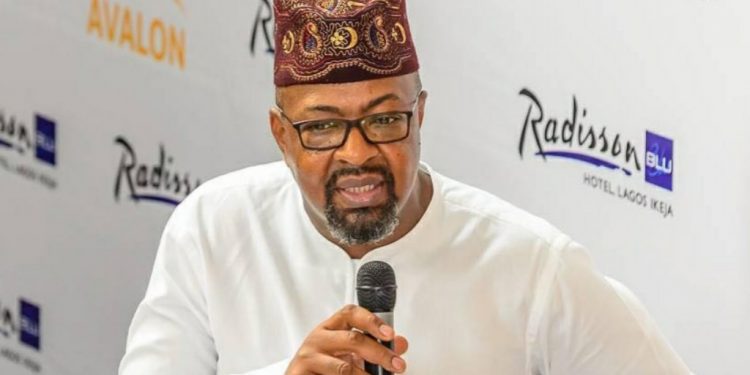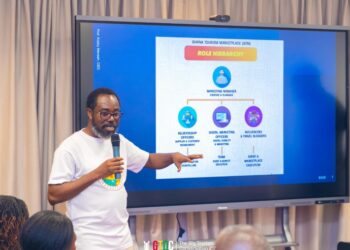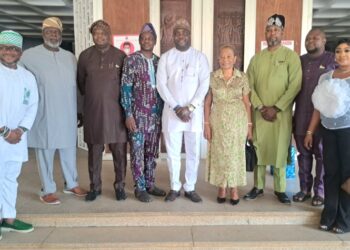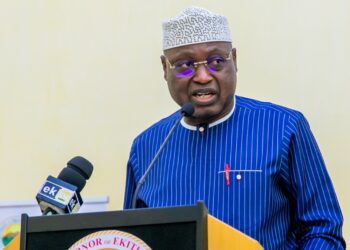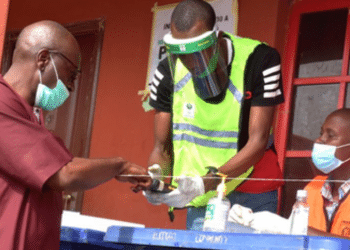Director-General of the Nigerian Tourism Department Corporation (NTDC), Mr Folorunsho Coker has encouraged tourism entrepreneurs and stakeholders to invest in the upgrade of tourism-related projects within the rural communities in Nigeria.
This is just as the NTDC boss encouraged them to embrace technology to gain more mileage and penetration and acquire adequate knowledge in the proficient use of digital platforms to promote and market existing tourist sites and attractions whilst ensuring effective service delivery to grow the tourism industry.
Coker said this in his message, to celebrate 2020 edition of World Tourism Day, and made available to Reporters At Large on Sunday.
The message reads:
“It is yet another edition of the World Tourism Day (WTD) celebrated all over the world on September 27 every year. It is a day set aside to create awareness about tourism globally and to highlight issues bothering the sector and proffer solutions on how to move the sector forward. In 2020, World Tourism Day celebrates the sector’s importance for rural communities with the theme: “Tourism and Rural Development”.
“It is no longer news that Tourism is one of the world’s most important economic sectors; it remains the largest employer of labour, providing livelihoods to millions of people, most notably women and youth. It is a key pillar for the conservation of natural and cultural heritage and curbing urban migration among others. Tourism’s economic and social footprint is greater than that of any other economic sector.
“Tourism has been among the hardest hit of all sectors by the COVID-19 pandemic. Restrictions on travel and a sudden drop in consumer demand have led to an unprecedented fall in tourism numbers, which in turn have led to economic loss and loss of jobs. This has particularly affected the most vulnerable groups of the population such as women, youth, children and the rural communities, especially in countries that depend exclusively on tourism.
“For many rural communities, indigenous peoples, women and many other historically marginalized populations, tourism has been a vehicle for integration, development, economic empowerment and generating income. Tourism gives rural communities the ability to protect and promote their natural surroundings, as well as their culture and heritage, in so doing; it allows tourists to enjoy unique experiences.
“In Nigeria, the majority of our tourism assets and sites can be found in rural communities. Cancellation of festivals and events and the closure/restriction of access to the tourism sites (especially the World Heritage sites) due to the COVID-19 pandemic has deprived communities of their economic activities and vital sources of livelihood. Every aspect of the tourism ecosystem such as transportation, hospitality and entertainment has been impacted.
“Data from the United Nations World Tourism Organization (UNWTO) shows that 100 to 120 million direct tourism jobs are at risk in 2020 alone. The UN Conference on Trade and Development (UNCTAD) forecasts a loss of 1.5 to 2.8 per cent of global GDP this year due to the pandemic.
“There is, therefore, an existing need to consider and deploy innovative recovery solutions that are home-grown and practical, tailor-made for our specific environment and people. They are in three policy thrusts: Healing for the people, healing for prosperity and healing for destinations (to preserve) health, employment and the environment.
“Tourism is a sector like agriculture with component industries like Hospitality, Travel and Transport, Entertainment and Fashion within it.
According to the Federal Government’s Post COVID-19 initiative Committee on the creative industry, the Tourism, Fashion and Hospitality Industries contribute over N3.2 Trillion to the economy annually.
“It is generally acknowledged that African peoples are creative, as demonstrated by a long history of unique cultural goods that have been accepted around the world. African arts and craft, music, films, textile, architectural designs have shown the quality that could make them competitive items of trade. The skills exhibited in these areas are rooted in the African experience and a lot of the creatives have their origins in the rural areas.
“Tourism is a low hanging fruit for post-COVID-19 recovery, especially in Nigeria. As a country, we should focus more on tourism as the best alternative to oil, with domestic tourism as the catalyst. We need to emphasize that Nigeria has the best of the ingredients of tourism. We have fascinating tourist sites, enviable cultural festivals, good weather, good food and hospitable people.
“At NTDC we realize that any proposed strategic path for recovery envisaged for the industry must leverage on innovative and disruptive tech ideas to enhance and promote Domestic Tourism. Domestic tourism is cheaper, with lesser restrictions, educates the citizens on the country, generates employment, generates revenue, reduces rural-urban migration and poverty, enhances the creative sector, galvanizes economic growth across sectors including agriculture and manufacturing, and contributes to infrastructure upgrade in rural and urban areas by encouraging governments commitment to its development.
“According to the UNWTO briefing note – Tourism and COVID-19, Issue 3 of September 2020, domestic tourism is six times larger than international tourism and accounts for greater than 70 per cent share of domestic trips globally.
The promotion of domestic tourism is the first step to restart tourism in a pandemic stricken era and this year’s theme presents us with another opportunity to recognize the importance of tourism to national development and particularly pay attention to the endless possibilities for the development of our rural communities where a lot of our tourist sites are located.
“As we celebrate another World Tourism Day, tourism entrepreneurs and stakeholders are encouraged to invest in the upgrade of tourism-related projects within our rural communities.
“They are also encouraged to embrace technology to gain more mileage and penetration and acquire adequate knowledge in the proficient use of digital platforms to promote and market existing tourist sites and attractions whilst ensuring effective service delivery to grow the tourism industry. With over 147million active internet subscriptions and a teledensity of almost 97%, we have a ready-made and vast domestic market for tourism development locally.
“In line with our agenda to promote domestic and regional tourism, we created the “Tour Nigeria” brand to drive domestic consumption of our tourism assets and products, create new channels of tourism markets, increase the nation’s GDP, create employment, and increase spending that will grow the economy, impact rural and urban communities positively and engage the predominant population of women and youth in tourism-related employment.
“We are well aware that all our plans for the sector still requires a modern and robust legal framework to regulate the industry and we remain hopeful that in the not too distant future, a befitting law for the industry will be passed by the National Assembly.
“The COVID-19 pandemic has hit the travel and tourism industry hard but it also offers a rare opportunity for reflection and recalibration to properly develop Travel and Tourism as it is uniquely equipped to be part of global recovery efforts going beyond tourism.
“We are all stakeholders in the tourism industry. The country is blessed with abundant tourist sites – let us “Tour Nigeria” and explore the best of its offerings.”


